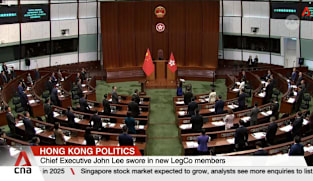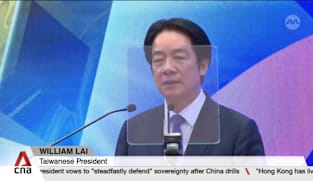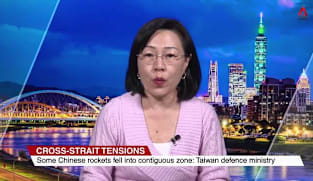Committee of Supply 2023 debate, Day 5: Grace Fu on stewarding a green, liveable and climate-resilient Singapore
Singapore must press ahead with its inter-generational effort to steward a green, liveable and climate-resilient home for its people and future generations, said Sustainability and the Environment Minister Grace Fu. Speaking in Parliament on Thursday (Mar 2), she outlined ways in which the Government is leading, enabling and facilitating Singapore’s transition to a climate-friendly nation. For a start, the public sector will lead the way in Singapore’s decarbonisation journey and pave the way for green efforts to take root. Under the GreenGov.SG initiative, the public sector has committed to achieve net-zero emissions around 2045, five years ahead of the national target. Agencies are pushing ahead with decarbonising their systems and processes. From this financial year (FY), the Government will publish an annual GreenGov.SG report, showing its efforts, progress and plans. It will start with reporting Scope 1 and 2 emissions, as well as electricity and water consumption, with reference to international standards and frameworks. From FY2024, all statutory boards will make their annual environmental sustainability disclosures. Several statutory boards have started making sustainability disclosures and are incorporating sustainability in their decision-making and risk management frameworks to achieve concrete outcomes. Ms Fu said the public sector will raise the bar by leveraging its procurement budget. From 2024, besides prequalifying the products on environmental standards, it will also consider the sustainability practices of the company it buys from, starting with large construction and ICT tenders. These make up more than 60 per cent of the value of Government procurement contracts. Such projects include public infrastructure, industrial buildings and office ICT equipment contracts. As this is a new concept, it will start with setting aside up to five per cent of the evaluation points for environmental sustainability. Ms Fu said the Government will review the amount and engage industry closely as it expands the sustainability criteria to more procurement sectors. She pointed out that environmental sustainability is not costless, and consumers will have to pay "a bit more" for greener goods and services. She stressed that green procurement in the public sector will encourage suppliers to adopt sustainability practices and develop greener products and services. She hopes the private sector will follow suit to publish sustainability reports and incorporate sustainability considerations in procurement policies. Turning to businesses and the community, Ms Fu outlined ways to get them to “do more with less”. The Government is allowing companies to use high-quality international carbon credits (ICCs) to offset up to five per cent of their taxable emissions. A whitelist of acceptable ICCs will be published later this year. To support an inclusive transition, the Government will help small- and medium-sized enterprises make the switch. The Energy Efficiency Fund will be enhanced to provide manufacturing companies with certainty of the grant amount upfront when they invest in energy-efficient equipment. The grant application process will be simplified and streamlined. Turning to households, the Government will add energy labels to portable air-conditioners and more types of lamps next year. “The Government will lay the foundations for a green Singapore that is climate-friendly and climate-ready. But we will only make headway if this is a shared vision and if we all take collective steps along this journey,” said Ms Fu.
Singapore must press ahead with its inter-generational effort to steward a green, liveable and climate-resilient home for its people and future generations, said Sustainability and the Environment Minister Grace Fu. Speaking in Parliament on Thursday (Mar 2), she outlined ways in which the Government is leading, enabling and facilitating Singapore’s transition to a climate-friendly nation. For a start, the public sector will lead the way in Singapore’s decarbonisation journey and pave the way for green efforts to take root. Under the GreenGov.SG initiative, the public sector has committed to achieve net-zero emissions around 2045, five years ahead of the national target. Agencies are pushing ahead with decarbonising their systems and processes. From this financial year (FY), the Government will publish an annual GreenGov.SG report, showing its efforts, progress and plans. It will start with reporting Scope 1 and 2 emissions, as well as electricity and water consumption, with reference to international standards and frameworks. From FY2024, all statutory boards will make their annual environmental sustainability disclosures. Several statutory boards have started making sustainability disclosures and are incorporating sustainability in their decision-making and risk management frameworks to achieve concrete outcomes. Ms Fu said the public sector will raise the bar by leveraging its procurement budget. From 2024, besides prequalifying the products on environmental standards, it will also consider the sustainability practices of the company it buys from, starting with large construction and ICT tenders. These make up more than 60 per cent of the value of Government procurement contracts. Such projects include public infrastructure, industrial buildings and office ICT equipment contracts. As this is a new concept, it will start with setting aside up to five per cent of the evaluation points for environmental sustainability. Ms Fu said the Government will review the amount and engage industry closely as it expands the sustainability criteria to more procurement sectors. She pointed out that environmental sustainability is not costless, and consumers will have to pay "a bit more" for greener goods and services. She stressed that green procurement in the public sector will encourage suppliers to adopt sustainability practices and develop greener products and services. She hopes the private sector will follow suit to publish sustainability reports and incorporate sustainability considerations in procurement policies. Turning to businesses and the community, Ms Fu outlined ways to get them to “do more with less”. The Government is allowing companies to use high-quality international carbon credits (ICCs) to offset up to five per cent of their taxable emissions. A whitelist of acceptable ICCs will be published later this year. To support an inclusive transition, the Government will help small- and medium-sized enterprises make the switch. The Energy Efficiency Fund will be enhanced to provide manufacturing companies with certainty of the grant amount upfront when they invest in energy-efficient equipment. The grant application process will be simplified and streamlined. Turning to households, the Government will add energy labels to portable air-conditioners and more types of lamps next year. “The Government will lay the foundations for a green Singapore that is climate-friendly and climate-ready. But we will only make headway if this is a shared vision and if we all take collective steps along this journey,” said Ms Fu.



















